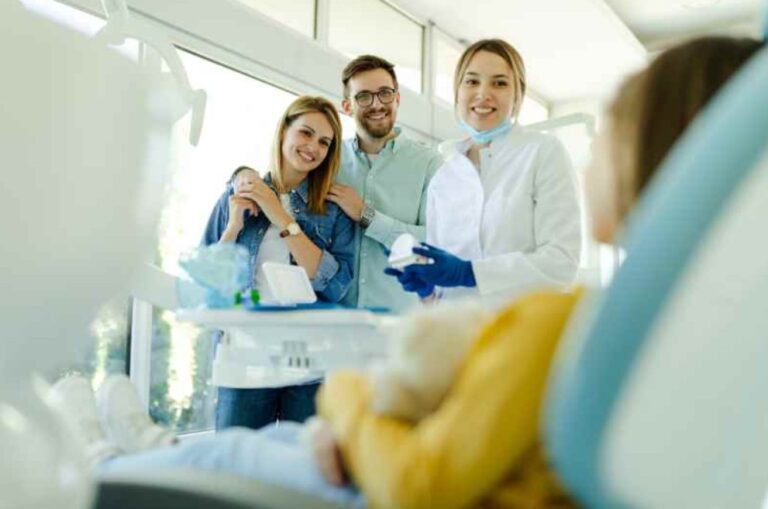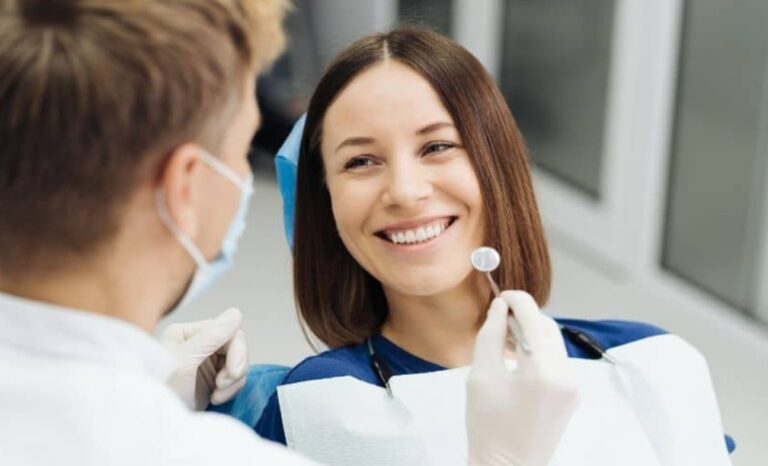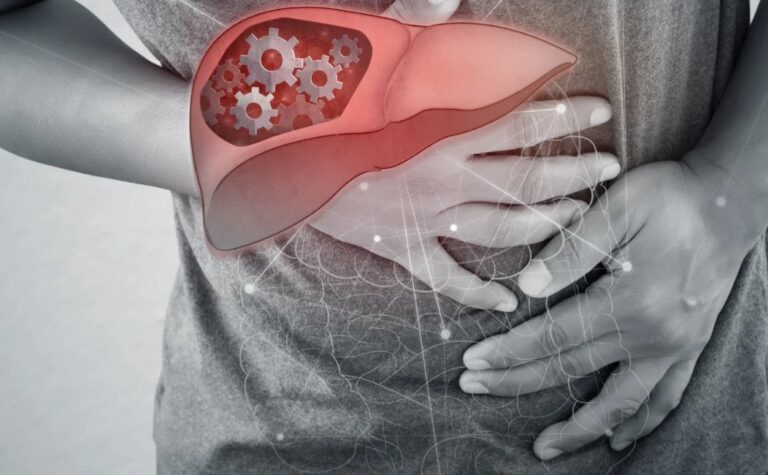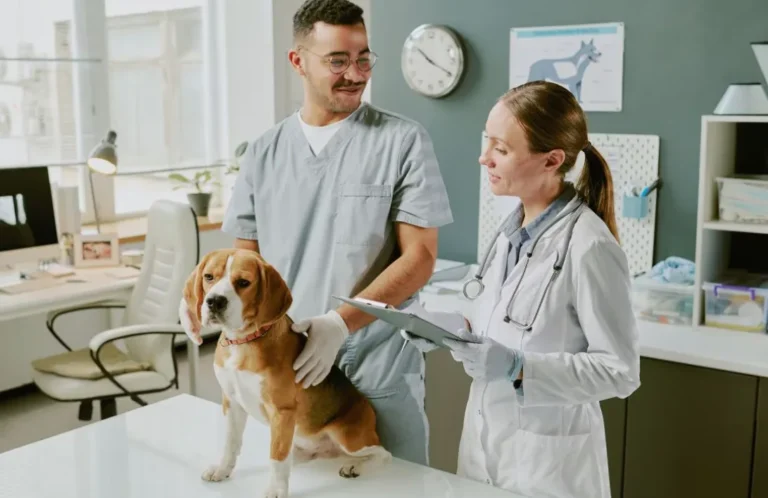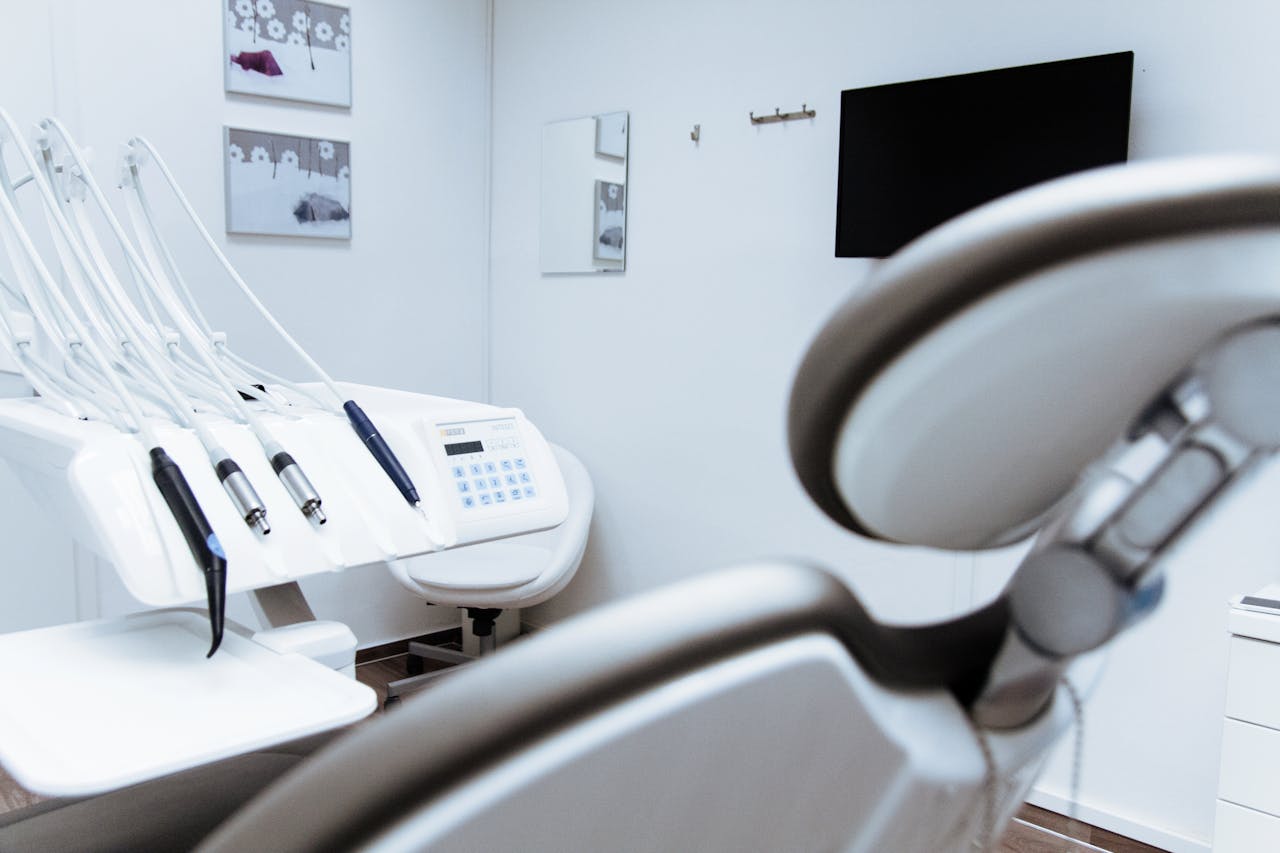
Collaborating with dental labs enables dentists to supply accurate, high-quality restorations to patients efficiently and reliably. The laboratories provide specialized knowledge that helps with some complicated cases; this includes implants and custom restorations. Working with lab services minimizes the adjustments made at the chairside and saves time. Here are a few types of dental labs and how they support dentists:
Full-Service Lab
A full-service dental lab has complete restorations like crowns to repair broken teeth, bridges to replace lost teeth, and customized full dentures that properly fit the patient’s mouth. The lab can also provide single-tooth implants or partial dentures to help restore the chewing capacity. To restore teeth alignment and prevent grinding, some labs also supply orthodontic retainers and nightguards, which can be worn when the patient sleeps.
Digital integration may be provided by full-service labs through CAD/CAM software; this assists dentists in precision restoration and digital implant guides to simplify their work. Labs create digital dentures from impressions that dentists send to them. These impressions can be digital or traditional. Some labs work with reputable partners to 3D print the dentures. Digitally made dentures benefit dentists because they help streamline the production process, and the lab can quickly make new ones from saved files.
Custom veneers align with the patient’s anatomy, which helps to avoid improper or uncomfortable fits. Crowns that are shade-matched and customized implant restorations may enhance the desired cosmetic outcome. Some labs offer same-day service, depending on the type of repair needed and the time it is requested.
Implant-Focused Lab
An implant-focused lab specializes in items like screw-retained abutments and cement-retained abutments that make placement of the restorations easier. These implants may minimize the number of chairside adjustments and increase the accuracy of occlusion. Ceramic implant crowns made from monolithic lithium disilicate are durable, and they resemble the look of natural teeth. Labs can create implants made from other materials, including zirconia, gold, and porcelain fused to metal. Work with the lab to determine which material will work efficiently for your patient’s needs and goals.
These laboratories utilize computerized scanning to produce crowns, which hastens workflow productivity. These labs enhance communication with dentists by creating models, such as a wax replica, that patients are able to try before the design is finalized. Dentists may also receive a custom implant crown that fits the gum contour and a customized abutment designed to accommodate variations in bite.
Custom Restoration Lab
A custom restoration lab should be dedicated to creating items that suit the specific dental structure of a patient. Labs provide ideal results when they use accurate impressions or digital scans to help improve functionality. They are able to match the color, translucency, and shape of a patient’s teeth to make the restorations look natural.
Close cooperation with dentists helps restorations meet certain treatment needs and clinical expectations. Custom laboratories are helpful with complicated cases, including full-mouth reconstructions or dental anomalies. After making a custom appliance, labs may create molds of the patient’s teeth to make sure the implant or denture fits securely, without being too tight or loose. Every restoration is thoroughly assessed for proper functionality, longevity, and aesthetics before it is delivered to the dentist.
Also Read: Exploring the Services Offered by Dentists
Contact a Full-Service Dental Lab
Dental laboratories contribute to improving patient outcomes through accurate, durable, and aesthetically pleasing restorations. Labs that are full-service and have customization options cater to the individual anatomy of various patients, while streamlining the workflow and the efficiency of treatment that dentists use. High-technology tools and knowledge of materials enable labs to minimize errors and enhance restorative predictability. Contact a dental lab to provide your patients with comfortable and well-fitting restorations.


